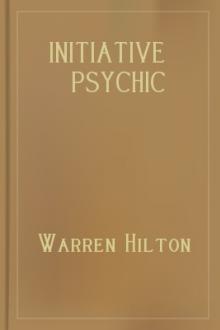Genre Philosophy. Page - 9
No registration or authorisation! And it is all for free!

* The less a man can be physically forced, and the more he can be morally forced (by the mere idea of duty), so much the freer he is. The man, for example, who is of sufficiently firm resolution and strong mind not to give up an enjoyment which he has resolved on, however much loss is shown as resulting therefrom, and who yet desists from his purpose unhesitatingly, though very reluctantly, when he finds that it would cause him to neglect an official duty or a sick father; this man proves his

elves, not after the usual manner of works on psychology, but solely from the standpoint of practical utility and for the establishment of a scientific concept of the mind capable of everyday use.[Sidenote: Fundamental Laws and Practical Methods] The elucidation of every principle of mental operation will be accompanied by illustrative material pointing out just how that particular law may be employed for the attainment of specific practical ends. There will be numerous illustrative instances

count of howhis wife had died, and how he had been able for manyyears to keep in touch with her. All sorts of detailswere given. I read the book with interest, andabsolute scepticism. It seemed to me an example of howa hard practical man might have a weak side to hisbrain, a sort of reaction, as it were, against thoseplain facts of life with which he had to deal. Wherewas this spirit of which he talked? Suppose a man hadan accident and cracked his skull; his whole characterwould change, and a

se those things are called substances within which, as species, the primary substances are included; also those which, as genera, include the species. For instance, the individual man is included in the species 'man', and the genus to which the species belongs is 'animal'; these, therefore-that is to say, the species 'man' and the genus 'animal,-are termed secondary substances.It is plain from what has been said that both the name and the definition of the predicate must be predicable of the

vements be followed even at short distances without having material contact, by means of the air, with the object; sight indeed appears to have to do with Space- and sound with Time-perception. In examining Nature by means of our senses we find we are so hemmed in by what we have always taken for granted and so bound down by modes of reasoning derived from what we have seen, heard, or felt in our daily life, that we are sadly hampered in our search after the truth. It is difficult to sweep the

"Illusions" by James Sully is a psychological thriller that takes readers on a journey through the mind of a troubled protagonist. The novel follows the story of a man who becomes increasingly detached from reality as he struggles with a traumatic past and a series of unsettling events in his present. Sully's writing is both suspenseful and thought-provoking, exploring themes of memory, perception, and identity. As the story unfolds, readers are drawn into a world of intrigue and

ut if you make that remark after hearing my lectures, I shall feel ashamed of you, just as I always feel humiliated when any friend of mine makes a fool of himself.PHYSIOGNOMY is the science of external appearances. The etymology of the word signifies the knowledge of nature derived from examination or observation. We may speak of the physiognomy of a landscape, of a country, a state, a continent, or an individual, and by that we mean the external appearance, that which conveys a knowledge of

ving up what they call their rights for others, and "in honor preferring one another."We find that Abram was constantly surrendering his own selfish interests and trusting to God. What was the result? Of all the men that ever lived he is the most renowned. He never did anything the world would call great. The largest army he ever mustered was three hundred and eighteen men. How Alexander would have sneered at such an army as that! How Caesar would have looked down on such an army! How

he above lines from Matthew Arnold are quoted by one of my very numerous correspondents to support a certain optimism in this matter of a systematic attempt to improve the mind. They form part of a beautiful and inspiring poem, but I gravely fear that they run counter to the vast mass of earthly experience. More often than not I have found that a task willed in some hour of insight can not be fulfilled through hours of gloom. No, no, and no! To will is easy: it needs but the momentary bright

Your quickened step, your new-found decisiveness of action, your more observant eye, your clear-cut speech instead of the former drawling utterance, your livelier manner, your freshened enthusiasm and enjoyment of life--all of these are but manifestations of a quickened intelligence.[Sidenote: Quickened Mentality] They are the working out through the motor paths of mental impulses to muscular action. And these impulses to muscular action come thronging into consciousness because the livelier